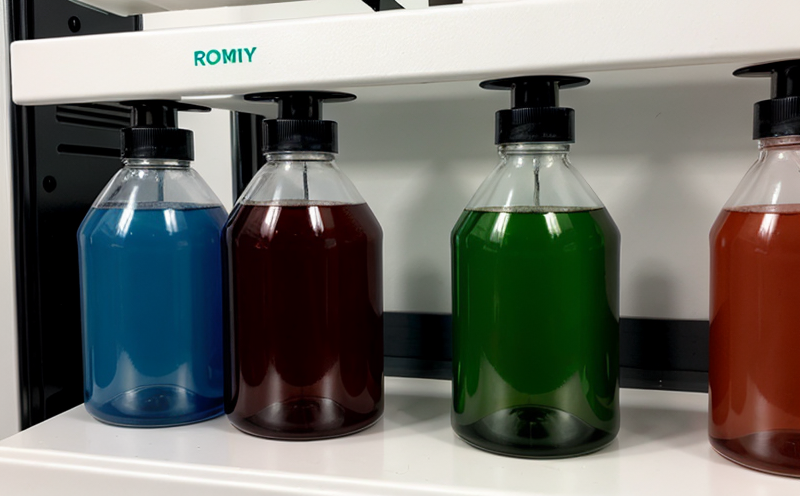ASTM D256 Impact Resistance Reactivity Testing in Polymers
The ASTM D256 test method evaluates the impact resistance of polymers by measuring their ability to withstand sudden, localized impacts. This is crucial for ensuring that materials used in applications like automotive components, electronics, and construction materials can endure real-world stress without failure.
This testing procedure is particularly important when dealing with reactive polymers where molecular structure influences mechanical properties significantly. By understanding how these materials behave under impact, engineers can optimize formulations to enhance performance while maintaining safety standards.
The ASTM D256 test involves subjecting specimens cut from the polymer sample to an impact force applied at a controlled angle and velocity. The resulting crack propagation is measured using high-speed cameras or other imaging techniques to determine energy absorbed before fracture occurs. This information provides valuable insights into the material's toughness—its capacity to absorb energy without breaking.
For polymers undergoing reactive processes, such as cross-linking or radical polymerization, it’s essential to assess not only static mechanical properties but also dynamic ones like impact resistance. These reactions can significantly alter molecular weight distribution and crystallinity, affecting overall performance characteristics. Therefore, ASTM D256 serves as an indispensable tool for quality assurance teams involved in developing new polymer compounds.
Accurate interpretation of test results requires consideration of various factors including specimen geometry, environmental conditions during testing, and post-test analysis procedures. Compliance with relevant international standards such as ASTM D256 ensures consistent outcomes across different laboratories worldwide.
Understanding the nuances of this test helps stakeholders make informed decisions about material selection based on expected service environments. For instance, automotive designers might prioritize materials with high impact resistance for safety-critical parts like bumpers or dashboards where even minor impacts could lead to catastrophic failures if not properly engineered.
Industry Applications
| Industry Sector | Application Example |
|---|---|
| Aerospace & Defense | Testing composite materials used in aircraft structures to ensure they can withstand high-velocity impacts during landing. |
| Automotive Manufacturing | Evaluating bumper systems and other exterior components subjected to repeated low-speed collisions without compromising structural integrity. |
| Consumer Electronics | Assessing housing materials for portable devices like smartphones or tablets that must endure accidental drops yet remain functional. |
| Construction Materials | Quality control of concrete mixtures or structural adhesives used in building facades exposed to wind loads and occasional impacts from debris during storms. |
Customer Impact and Satisfaction
Implementing ASTM D256 impact resistance reactivity testing ensures that materials meet stringent quality standards, thereby enhancing customer confidence in products. By providing reliable data on material performance under various conditions, this service allows manufacturers to improve product reliability and safety.
Quality managers benefit from having accurate test results to identify potential issues early in the development process, allowing for corrective actions before large-scale production begins. Compliance officers can use these tests as part of their overall risk management strategy, ensuring adherence to regulatory requirements while maintaining competitive advantages through innovation.
R&D engineers gain valuable insights into material behavior during critical stages of product design and prototyping. This knowledge enables them to refine formulations, optimize processing conditions, and enhance end-product performance continuously. Procurement teams can leverage these test results when sourcing raw materials or negotiating contracts with suppliers, ensuring the highest quality at competitive prices.
Customer satisfaction improves significantly when products meet expectations consistently. With reliable ASTM D256 testing services, customers receive assurance that their purchases will perform reliably over time, reducing warranty claims and enhancing brand reputation.
International Acceptance and Recognition
The ASTM D256 test method is widely accepted globally due to its rigorous methodology and reproducibility. It has been adopted by numerous organizations including national standards bodies like the American Society for Testing and Materials (ASTM), British Standards Institution (BSI), European Committee for Standardization (CEN), and International Organization for Standardization (ISO).
Adherence to ASTM D256 helps companies comply with international regulations governing product safety, environmental impact assessments, and occupational health & safety standards. This compliance fosters trust among stakeholders both domestically and internationally.
The widespread use of this standard facilitates seamless trade between countries by setting common benchmarks for material performance expectations. Companies operating across multiple jurisdictions can rely on consistent results regardless of location, streamlining operations and reducing costs associated with non-conformance penalties or rework.





